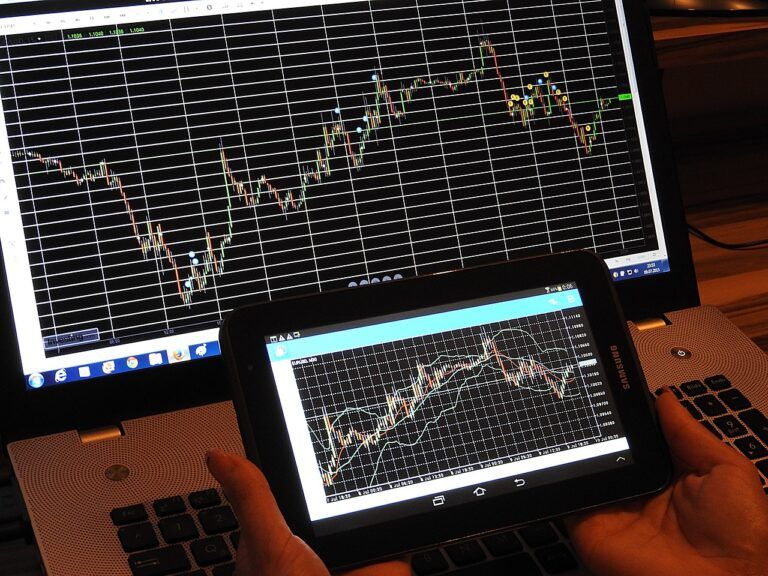Cryptocurrency exchange tokens have become a crucial role in the development of cryptocurrency exchanges, one of the main pillars of the crypto industry. They saw these platforms take their competition to grab users to a whole new level, benefiting the ecosystem.
As CryptoGlobe wrote, cryptocurrency exchanges bridge the gap between the traditional financial world and this nascent space. The launch of exchange tokens from exchanges like binance, OKEx, Huobi, KuCoin, and CoinEx has given token holders several advantages, often including revenues being shared.
But looking back at 2019, how have these exchange tokens performed? Was it ideal for investors to side with one cryptocurrency exchange, or was diversity the way to go? Did they outperform other cryptocurrencies?
Cryptocurrency Exchange Tokens’ Performance
As new cryptocurrency exchanges emerge and try to stand out, new tokens are created on a regular basis. By now, there are dozens – if not hundreds – of cryptocurrency exchange tokens out there so in this article we’ll focus on those offered by some top cryptocurrency exchanges: Binance, OKEx, Huobi, and KuCoin.
In 2019, OKEx’s OKB token appears to have outperformed all other tokens, as CryptoCompare data shows it went up a total of 317.9% last year. OKB was followed by Huobi’s HT token, which rose 170.8% last year. Binance’s BNB token, one of the most popular exchange tokens, went up 121.4% in said period, coming. KuCoin’s KCS rose 73.9%.
 Source: CryptoCompare
Source: CryptoCompare
It’s worth noting the graph shows BNB outperformed the competition in the first half of the year, but seems to have started dropping at about the same time bitcoin started dropping from its 2019 high of $13,000. After it dropped other exchanges tokens kept on growing, with OKB outperforming the market.
Notably, data shows that investing in one of the exchange tokens from the top these top three cryptocurrency exchanges would’ve been the way to go, as all of them ended up outperforming bitcoin. In this next chart, we’re replacing KuCoin’s KCS token for BTC.
 Source: CryptoCompare
Source: CryptoCompare
There are several potential factors behind this type of performance. Let’s take a look at some of the growing use cases for these tokens.
Exchange Tokens’ Use Cases
Competition has seen cryptocurrency exchanges do whatever they can to grow the ecosystem around their own cryptocurrencies. Binance’s BNB was originally launched with a simple use case: give its holders discounts on trading fees and potentially appreciate as the exchange uses its profits to burn tokens every quarter.
Every cryptocurrency exchange now running initial exchange offerings (IEOs) also only lets investors participate using their own cryptocurrencies. Use cases for these tokens have, however, expanded far beyond these two options. As an example, let’s look into the exchange token of OKEx, which appreciated the most over the past year.
According to monthly report the cryptocurrency exchange published, OKB has both internal and external use cases. Among the described internal use cases – beyond the OKEx Jumpstart platform and trading discounts – there are also listing benefits, governance, and other advantages.
As for the cryptocurrency’s external use cases, OKEx has a network with dozens of partners that accept the OKB token for a variety of services, including security, financial services, and lifestyle. Offers range from cybersecurity solutions to crypto depositing, mortgage lending, loan management, and travel booking services.
A recently published update adds that OKB is now listed on the largest cryptocurrency exchange in Indonesia, Indodax, letting users buy crypto directly with the Indonesian Rupee. The update also details OKEx partnered with businesses to offer its OKB holders new use cases, which include a social platform, wallet services on Dapp Pocket, and payment options with crypto offline.
Another update from the exchange details OKB’s first OKB/EUR market was launched thanks to European cryptocurrency exchange startup Bitlocus. Via Bitlocus, users will be able to trade OKB using SWIFT, SEPA transactions, and Visa cards.
Most cryptocurrency exchanges that have so far launched their own tokens have been adding more and more services to the mix. Using a wallet that includes trading services within it means cryptocurrency use cases in general have been growing thanks to this competition.
Token Burns
As mentioned above, one of the first advantages Binance’s BNB had was the buy-back and burn program. The cryptocurrency exchange uses a portion of its profits to burn tokens to effectively reduce supply and make the circulating tokens more valuable.
Other trading platforms have now adopted the move, with OKB recently burning a total of 5.9 million tokens, for a total of 13.9 million tokens – around 5% of its total supply – being bought-back and burned since May 2019.
KuCoin itself has been announcing KCS buy-backs to burn millions of tokens, making the circulating supply more valuable for investors. These token burns, coupled with the other use cases offered by the exchanges, helped crypto exchange tokens outperform other top cryptocurrencies.








